All art is political. The decision to create, the artistic choice to have a voice, the choice to be heard is the most political act of all.
-Amanda Gorman
Poetry, I believe, is one of the most political forms of writing. It derives its power from the capacity to create and to be heard. Hence, during crisis, we find a resurgence of poetry. Be it pandemic, ecological crisis, political instability, upsurge of fascist forces or gender issues, poets have always risen to the occasion to make themselves heard.
The anthology under discussion in this month’s column of ‘Poetspeak’, Collegiality and Other Ballads: Feminist Poems by Male and Non-Binary Allies, makes a political statement with its very framework of including ‘only’ male and non-binary voices to speak of feminism. Women have been concerned about their issues even before the term feminism came into currency, as we see in the works of proto-feminists and early thinkers. Feminism has given a structure and direction to a struggle which has been for existence, recognition and dignity. It is a struggle that continues, an ongoing journey, evolving along the way to accommodate and address newer challenges. Yet today, feminism cannot remain just women’s concern. Intersectional feminism and rise of LGBTQ movements have pointed towards the need for feminism to be more inclusive. Male exclusionary politics practiced by feminists may not be of much help to remove toxic masculinity. There is a need for integrated gender concerns and awareness.
Collegiality and Other Ballads: Feminist Poems by Male and Non-Binary Allies edited by Shamayita Sen is definitely a move towards this direction. The anthology has already drawn quite a lot of attention from reviewers, as such a work is expected to. It has already triggered a dialogue around the need and validity of male and non-binary allies writing feminist poems. Though this anthology excludes female voices, the intention is not exclusionist, rather, it is to highlight the ‘non-female’ voices. It is true that all the poems do not meet expectations and there are quite a few stereotypical representations of female experiences revolving around issues such as rape and motherhood. But this book definitely is an effort towards a more holistic perspective towards feminism. The doubt articulated by the editor in her introduction regarding the suitability of such a collection in the present times, is valid as is reflected in a few poems and also in some criticisms that it had garnered. Yet the success of this anthology lies in its two-fold perspectives – it brings out those feminist voices that are not otherwise given a platform, and it also encourages other ‘non-females’ to engage with feminist concerns. Indian poets writing in English have been experimenting in terms of both form and content and has evolved in the recent years. Shamayita Sen’s conceptualization of this anthology is indicative of this process of evolution.
John Burnside says, “Hope is of the essence, then, for all poets. We might even say that to make a poem at all is an act of hope”. This anthology, with all its strengths and flaws, is also an act of hope; that hope to end the hesitations that we associate with male and other non-binary allies speaking of feminism, that which has been articulated by Saikat Majumdar in his Foreword to the anthology –
“I was honored and hesitant in equal parts when the editor and the publisher asked me to write a foreword to this collection; the hesitation came no less from my own maleness than from my identity as a novelist asked to speak on poetry.”
It is this ‘hesitation’ that comes from one’s ‘maleness’, to speak of feminism, we ‘hope’ this anthology will overcome.
Following is a conversation with the editor and poet, Shamayita Sen, where she speaks about the making of this anthology and what made her do so.
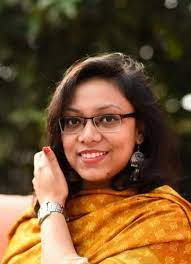
NS: Shamayita, this anthology seems to be one of its kind. So, to begin with the question that would come first to any reader’s mind – why did you decide to collate a book of feminist poems by males?
SS: To put it simply, no work such as this has been done before, specifically in the subcontinent. So, I jumped to the opportunity. We have seen enough submission calls for journals and books featuring feminist issues, but they invariably open only for female authors. The fact that men or queer folx are/can be feminists doesn’t seem to fit well into the popular media narrative that equate feminism to men-bashing.
Ally-ship is key to any socio-political movement, and I believe this book is exemplary that way. Feminism, above all, encompasses empathy and inclusion. Usawa Literary Review is doing a good job regarding this.
NS: Feminism, in popular conception, has been an ideology of, for and by the women, though that is not strictly correct. Did you face any opposition or hindrances when you started working on it?
SS: The book was criticised for excluding female poets. I knew that might happen. I have had extensive discussions with fellow scholars and feminists before and after floating the call. Though these discussions have helped me broaden the scope of the anthology, most of it wound around what seemed to indicate that men were incapable of feminist writing. This notion is in itself sexist, thus incorrect.
I was interested in viewing ally-ship in contemporary feminist movement, and see how different gender movements inspire and affect each other. This book was supposed to be a commentary on the same. Most poets I solicited submissions from readily submitted, but a couple of senior poets had reservations regarding men writing feminist poetry, or poetry being categorised thus. They, of course, did not submit. I also think, the intersection of queer and feminist writing seemed unsettling for a few heterosexual and/or closeted poets. I believe an anthology is no place for exposition of one’s sexual orientation, which is why I used ‘non-binary’ instead of ‘queer’ in the sub-title, which too became a concern for critics later.
The book inhabits grey areas of identity politics, and I know there is no easy way out of it. But my publishers were extremely supportive. Even female editors who recently worked on other feminist anthologies reached out to me and were quite encouraging of the project.
NS: This makes me wonder, did you find any discernible difference in ‘male’ attitude towards feminism, or in their expressions of the same, as opposed to those of women? By difference, I don’t mean binaries but any subtleties or any change that you have noticed in the poems received? It would be great if you may also quote from a few poems to elucidate your points.
SS: I remember writing to one of the contributors suggesting edits—with one word replaced, we would have done away with a subtle victim blaming. He immediately acknowledged the suggestion. I believe, this would have come naturally to female authors. Though we may often find people missing nuances irrespective of their gender, there exists an approach of men writing feminist pieces which critics dismiss as sexist. Of course, men are writing from a position of privilege, unlike woman who write from the margins and out of experience. Representative writing is objective observation, sans the urgency and anxiety with which women write. Their (writing by men) needs to be measured writing too, as they toe slippery slopes with opinions belittled as mansplaining.
Most of my contributors write with a burden of guilt and grief, which is why there is hardly any cheerful voices; and pieces celebrating an empowered/liberated woman is rare. Maaz Bin Bilal’s “Muslimah,” Amit Shankar Saha’s “Trafficked,” Allan Kolski Horwitz’s “Census,” and Kinshuk Gupta’s “How Our Sisters Live and Die” are commentaries and complaints about women still having to fight social injustices in 2021. Ra Sh’s “Emasculated,” and Chand’s “My Gender” are brave attempts in which they speak as survivors (working towards) owning their bodies. Alan Britt’s protagonist in “Blue” acknowledges the intergenerational transfer of traumatic memories and cycle of violence, but remains unaware of tools to aid a change. Basab Mondal’s “Foetus” stands out, commemorating a bland and tiring end of a moll’s day in the city of Kolkata. Madhu Raghavendra’s “Conflict” depicts sex strike in the face of warmongering — “I am a woman; I can freeze civil wars / between my thighs / let your arousal increase / peace.”
Foetus by Basab Mondal
The half-eaten moon climbs past
the wires of the tram line
to settle in a corner.
Rays from the street light
whitens the penumbra of the city.
The moll carrying the unborn
in the dark of her womb,
alights the last bus.
It halts below the lamp
for the day.
From an obtuse height, the glow
accompanies her like a halo
while she walks through the mist.
excerpts from Chand’s My Gender
My gender is a crown of thorns.
Of course, it doesn’t fit in your binaries of man and woman.
It smells of rose and jasmine
And hot steaming black coffee sipped slowly at dusk.
It was chiselled by taunts of sissy
And gandu and chakka.
It was baked in the oven of shame
But trust me, the frosting is super sweet.
…
My gender drapes itself in a red Pochampally saree really well,
Not to forget multi-coloured flared palazzos,
It totally rocks the bindi and kajal look.
My gender tastes like butter chicken at times,
And like Banoffee pie on other occasions.
My gender is cast in euphoria,
Shaped by the resistance to the forces that bind us.
My gender runs wild, a river in spate,
Flowing through your dams of screening committees
And binary citizenship registers.
It laughs at the idea that you could tame it.
My gender fucks with your mind and categories
And wants to fuck you.
My gender makes me happy
Of course, there are limitations to men writing female characters, but I believe it creates a web of solidarity, and encourages introspection. I would also like to mention here that I’m looking forward to Reema Ahmad and Semeen Ali’s Khushk Zubaan, Bebaak Jigar; my contributor’s copy is on its way. It will be a good study of what young women think of feminism or how they see it affecting life and art.
NS: As a poet yourself, how will you assess the poems in this anthology? Any particular favourites?
SS: I am happy a few poems in the anthology shifts from the conventional literary depiction of women. For instance, the anthology features feminist gerontology. Among others, Sanket Mhatre’s “Bed No. 187,” and Aditya Shankar’s The Old Woman’s Kitchen” deal with this theme. The old and ailed female body, symbolic of financial burden, is the most neglected entity within heterosexual familial spaces that weigh women within the clichéd frameworks of pleasure and procreation. The collection also offers a necessary shift from motherhood being depicted as a virtue to it being juxtaposed with depravity in several poems. I was also keen on representing varied voices. It is high time we place Dalit, Muslim, Queer, and transcultural (here, also transnational) voices together to offer readers the diversity that India stands for.
K. Satchidanandan’s “Non-Negotiable” and Paresh Tiwari’s “Surviving Marital Rape” are my absolute favourites, because of the emotions they elicited on my first read. Their unflinching take on sacrifice and violence is a retrospection on the reality of women’s struggles within intimate spaces.
NS: What do you understand by poetry? And how much role activism plays in it? Would you call this book a form of poetry activism?
SS: Personally, writing poetry has been cathartic, it is my refuge, a much needed meditative pause in this scarecrow of urban existence. Poetry allows me to merge public grief with personal loss and trauma. It is often my way of showing solidarity, thus bridging the gap between political and personal. As a reader/critic, I am drawn to not just images, but to poetry that evokes emotions, unsettles me, or catches my breath. While living and writing in contemporary times, I believe one cannot separate poetry from identity politics. Art is a reflection of the author’s subjectivity and truth.
Art is activism, and this book is nothing short of that. This anthology was conceived as an experiment to quantify social uplift by putting the onus onto those who are historically and structurally in socially privileged positions of power: men, white or upper caste. Thus, while invoking debates and discussions, if the book is able to achieve at least something of what it initially aimed at, that is, developing or promoting a feminist conscience, I should be happy.
*



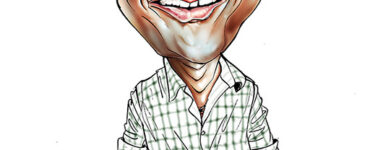
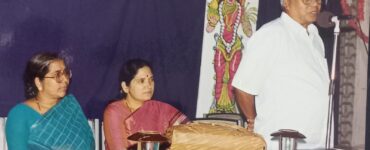
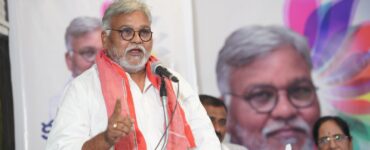
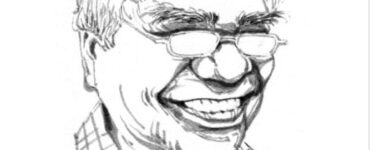
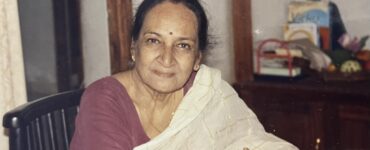

Add comment